One of the great delights in exploring a box set of movies is the possibility of finding something new and wonderful that you weren’t even expecting. Such was the case recently with the massive — and typically stupidly packaged — “Ford at Fox” set. I only bought it for the three Will Rogers movies it contained and for Tobacco Road (1941). In fact, I only bought it because Edwin Arnaudin alerted me to the fact that it was on sale for $50. (It has a list price of $299 and an Amazon price of $129.) It turned out to be an even better buy than I had imagined. I now have a greater appreciation and understanding of John Ford — a filmmaker I respected, but very rarely liked. I saw the greatness of his craft, his deep emotionalism, and much more. I believe I can now truly say that Ford has become a filmmaker I truly love. But the biggest revelation was a film I’d never even heard of — Pilgrimage (1933). It may just be, for me, his masterpiece. Also, because it’s an early Fox (pre-20th Century merger) title, most of which have long been inaccessible. More, it has no big name stars. In fact, it stars 72-year-old Henrietta Crosman — mostly known to hardcore film fans for The Royal Family of Broadway (1930) and Charlie Chan’s Secret (1936). To say, that she isn’t a box office name is an understatement. To say, that she is wonderful in Pilgrimage is not an understatement.
That Ford was allowed to make this film is frankly amazing. It could have not been a serious bid for anything other than art even in 1933. No one could possibly thought it would be a big hit — and yet it’s an elaborate production. The studio artistry is simply amazing and though its depiction of WWI lasts at best two or three minutes, it wasn’t done on the cheap (at least obviously). It was made at a time when Ford was still heavily in the thrall of F.W. Murnau’s Sunrise (1927). Actually, he never — at least on his personal projects — lost the Murnau influence (Sunrise changed his entire style of filmmaking), this may be its boldest expression of it. The film’s early scenes in the mostly studio created setting of Three Cedars, Arkansas might almost be from Sunrise — and in no shabby way. Ford seems to have absorbed the film into his very being.
Pilgrimage is a highly emotional — and often fairly grim — story of obsessive (almost to the point of repressed incest) mother love. The mother is Hannah Jessop (Crosman), who so dotes on her son, Jim (Norman Foster), that she enlists him in the army in order to keep him from the girl he loves, Mary Saunders (Marian Nixon). To make matters worse, it turns out that Maty is pregnant with his child, and although Hannah hekps deliver that child, she remains unbending in her antagonism toward both Mary and the child. Even when Jim is killed in the war, nothing changes. Ten years pass and Hannah remains an embittered woman — something that only starts to change when she is manipulated into traveling to France with hundreds of other mothers whose sons were killed on the battlefields there. This is the pilgrimage of the title, and Ford depicts it — with comedic moments that only heighten the drama – with all the sense of tragedy it contains. Some of its sentiments are very pointed in their anti-war tone, as when Hannah remarks, “I didn’t know generals were ever killed in a war.” But mostly, it’s played for the emotional drama that builds to Hannah’s increasing understanding of the monstrous nature of her actions — and her attempts to expiate them and simply come to terms with them.
The film is strong stuff. Apart from Crosman’s performance and the comedic-tragedy of Lucille La Verne as a pipe-smoking hillbilly war mother, it’s every inch a filmmaker’s movie. The rest of the cast is fine, but it’s mostly the meticulous filmmaking and those two performances that raise Pilgrimage to the level of art. There’s not a misjudged moment — even when the film veers toward the corny — and not an indifferently framed shot. Absolutely everything is just a little bit better than it has to be — the mark of a true artist. I’ve seen the film twice and been reduced to tears at several points on both viewings. The little that has been written about the film is interesting, especially the idea that the movie has a strong gay subext — a reading I understand, but can’t quite get behind. It mostly stems from the idea of the “I’d rather see my son dead than” aspect expressed openly early in the film. Now, I’d be the last person to deny that a pronounced gay subtext runs through Ford’s films (goodness knows, he liked his beefcake), and it may exist here, but I don’t — at this point anyway — quite feel it. Whether it;’s there or not, it is a masterpiece of a movie.
The Asheville Film Society will screen Pilgrimage Tuesday, June 3 , at 8 p.m. in Theater Six at The Carolina Asheville and will be hosted by Xpress movie critics Ken Hanke and Justin Souther.



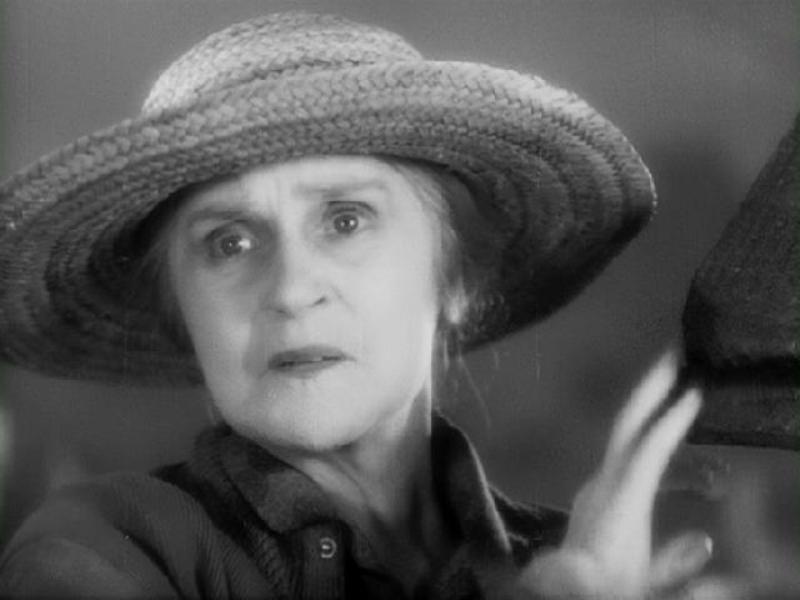
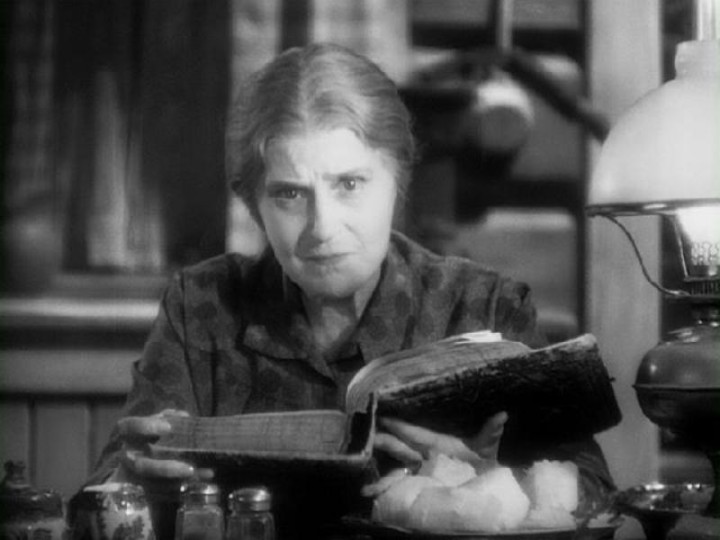
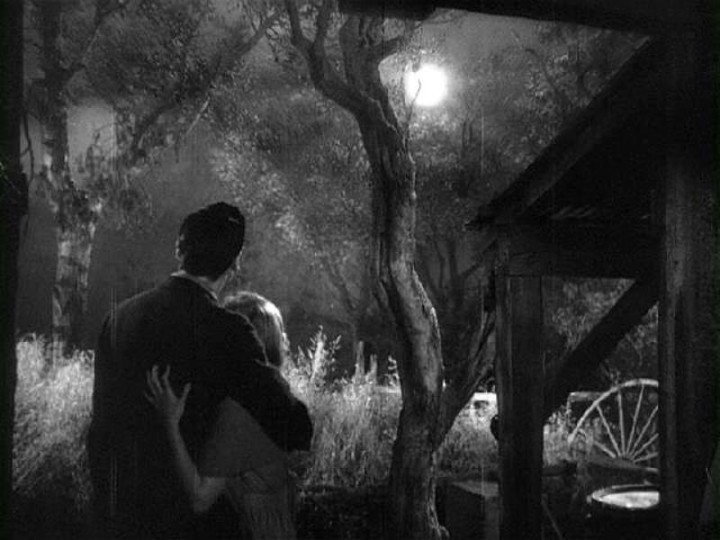
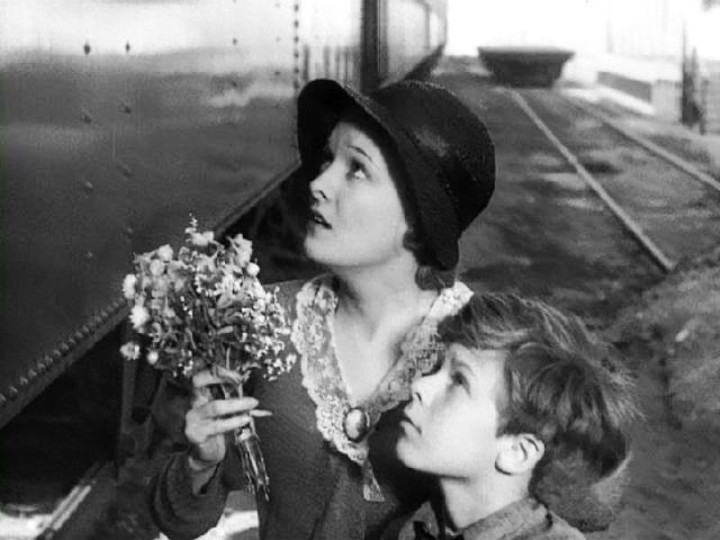
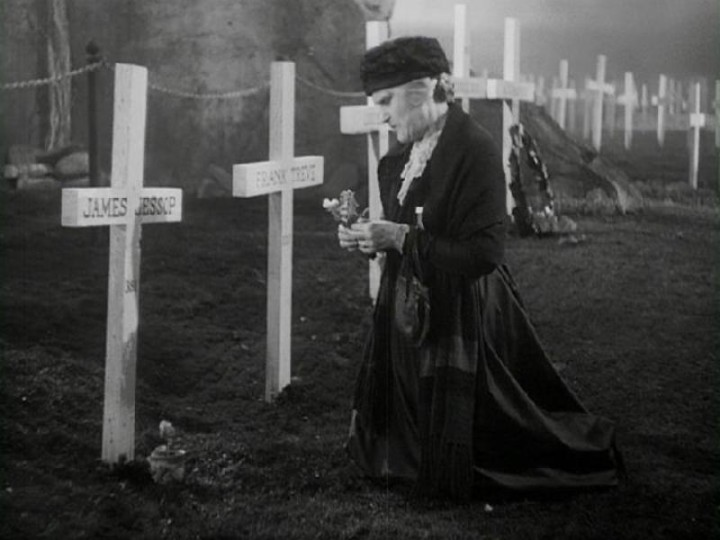
Solid turnout — especially for a movie no one had even heard of — and a strongly positive response to it. The sort of thing that makes you understand what Orson Welles was talking about when he said, “I studied the Old Masters — and when I say the Old Masters, I mean John Ford, John Ford, and John Ford.” Of course, when you study Ford, you’re also studying D.W. Griffith and F.W. Murnau.
Just read with much interest your review of “Pilgrimage” in MountainXpress. Are you syndicated or is this your home base? I liked your review and have just re-viewed the film in Prof. Joseph McBride’s class (“Women in the films of John Ford”) at San Francisco State University. His earlier class on Ford some years ago and his book (“Searching For John Ford”) have deepened my appreciation of both the man and the artist. Your name was familiar and I realize that I bought (though not yet read) your book on the films of Charlie Chan. I look forward to getting to know it. Do you write/blog elsewhere?
Thank you for reaching out to Ken Hanke. I’m sorry to say Ken died last year. Mountain Xpress was proud and fortunate to have been his home base, and we miss him and his contributions terribly.
I am sorry to learn that. I hope to catch up with some of his older reviews on your site. Thank you for publishing his work.